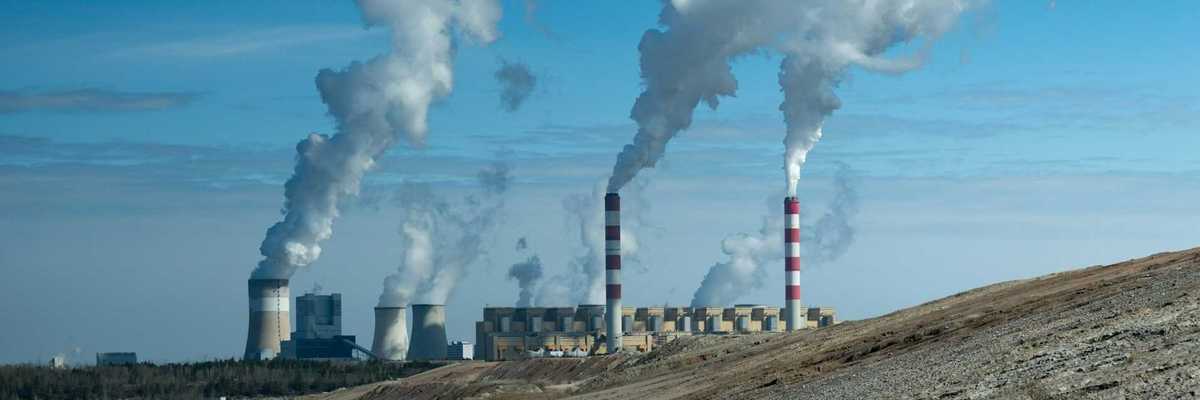tipping point
Heatwave blankets the globe, raising climate concerns
The Earth has experienced a continuous 12-month period of temperatures 1.5C above pre-industrial levels, according to new data.
In short:
- Between July 2023 and June 2024, global temperatures were the highest on record, 1.64C above pre-industrial times.
- Scientists warn of increased exposure to extreme weather and potential climate tipping points due to sustained high temperatures.
- Key climate metrics indicate a worsening trend unless greenhouse gas emissions are drastically reduced.
Key quote:
"This is inevitable unless we stop adding greenhouse gases into the atmosphere and the oceans."
— Carlo Buontempo, director of the Copernicus Climate Change Service
Why this matters:
Sustained high temperatures lead to severe weather events and threaten ecosystems, especially tropical coral reefs. Without significant emission reductions, global warming could exceed critical thresholds, exacerbating human and environmental harm.
Climate simulation raises alarm over potential ocean circulation collapse
A recent study by René van Westen showcases how melting Arctic freshwater could disrupt the Atlantic Ocean's circulation, potentially leading to abrupt climate changes.
In short:
- The Atlantic Meridional Overturning Circulation (AMOC), crucial for regulating climate and weather patterns, may be nearing a critical "tipping point" due to increased freshwater from melting ice.
- Historical data and advanced simulations indicate the AMOC has shut down before, with significant global climate implications.
- Recent observations suggest the AMOC is weakening, raising concerns about its stability and the rapid, severe consequences of its potential collapse.
Key quote:
“In simple terms [it] would be a combined food and water security crisis on a global scale.”
— Tim Lenton, climate scientist at the University of Exeter
Why this matters:
Understanding and monitoring the AMOC's stability is vital for predicting future climate changes. A collapse could drastically alter weather patterns, affect global food and water security, and challenge our ability to adapt. Solutions exist but competing interests slow implementation.
Climate change: Southern Ocean’s shrunken sea ice has entered ‘new state’
Warming waters have pushed Antarctica’s shrunken sea ice into a “new state”, scientists report, following a freakish season that left the Southern Ocean missing more than a million square kilometres of its normal cover.
Arno Kopecky: Climate’s tipping point lies in energy production
Arno Kopecky argues in The Narwhal that renewable energy has achieved critical mass, but the oil and gas industry has us staying a dangerous course amid climate change.
In a nutshell:
As clean energy gains traction, the rapid adoption of wind and solar power is poised to push coal to the brink of extinction. However, doomsday records continue to be broken, with unprecedented wildfires in Canada, rising ocean temperatures, diminishing Antarctic sea ice, and relentless heatwaves across the globe. As Earth's average global surface air temperature briefly surpasses the critical 1.5-degree Celsius threshold, the likelihood of irreversible tipping points, triggering cascading effects like permafrost melting and shifts in weather patterns, becomes increasingly ominous. Nevertheless, positive tipping points are also taking place, with the cost of renewable energy falling below that of coal and solar capacity outpacing other energy sources. These milestones, coupled with the projected dominance of renewables in electricity generation by 2025, offer a glimmer of hope for a sustainable future. However, the fossil fuel industry's vast profits and political influence present significant obstacles to the clean energy transition.
Key quote:
“This is the pivotal decade in the energy transition,” agrees a new report from the Rocky Mountain Institute. “Renewables will hit price tipping points in every major area of energy demand.”
The big picture:
By transitioning away from fossil fuels and embracing sources like solar, wind, and hydroelectric power, we can reduce greenhouse gas emissions, the main drivers of global warming. This shift not only curbs the devastating impacts of climate change, such as extreme weather events and rising sea levels but also improves air quality by reducing harmful pollutants associated with traditional energy sources. The widespread adoption of renewable energy technologies not only combats climate change but also paves the way for a cleaner, healthier future for all.
Read the entire opinion piece at The Narwhal.









